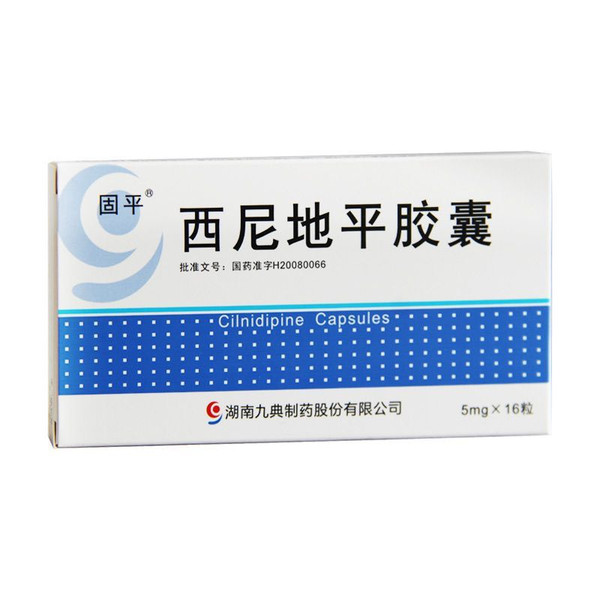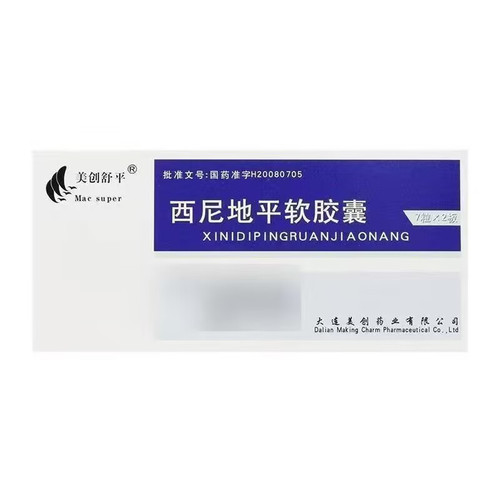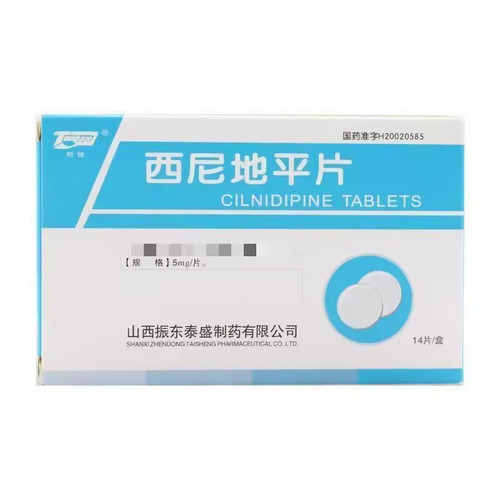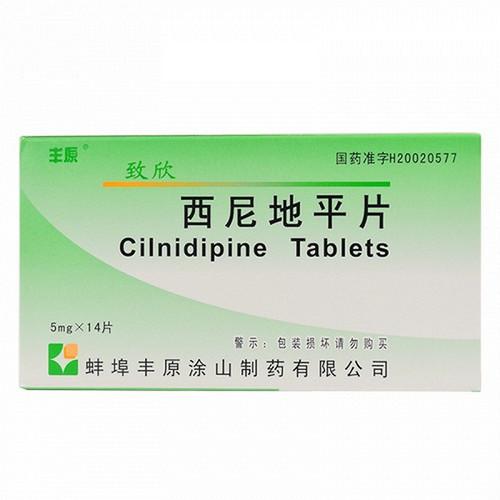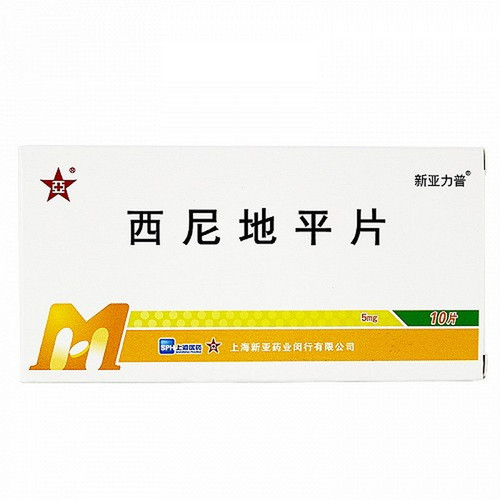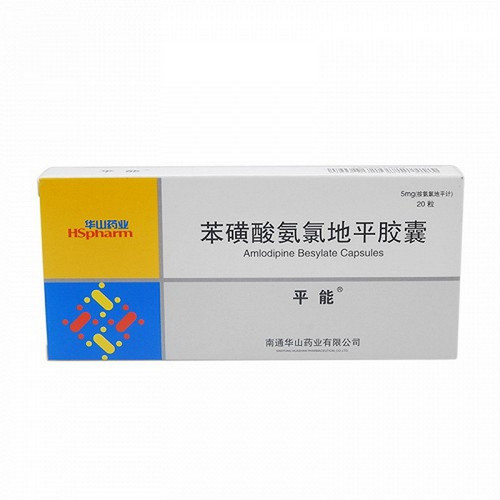Product Overview
[Drug Name]
Generic Name: Cilnidipine Capsules
Trade Name: GuPing Cilnidipine Capsules 5mg*16 Capsules
Pinyin Full Code: GuPing XiNiDiPingJiaoNang 5mg*16Li
[Main Ingredients]
The active ingredient of this product is cilnidipine. Chemical Name: (±)-3-(2-methoxyethyl)-5-[3-phenyl-2(E)-propenyl]-2,6-dimethyl-4-(3-nitrophenyl)-1,4-dihydro-3,5-pyridinedicarboxylate. Molecular Formula: C27H28N2O7. Molecular Weight: 492.53. Excipients: Lactose, sodium starch glycolate, magnesium stearate, silicon dioxide.
[Properties]
This product consists of light yellow granules.
[Indications/Main Functions]
For the treatment of hypertension.
[Specifications]
5mg*16 tablets
[Dosage and Administration]
The initial adult dose is 5mg (one tablet) once daily after breakfast. The dose can be increased based on the patient's clinical response, up to a maximum of 10mg (two tablets) once daily after breakfast.
[Adverse Reactions]
Adverse reactions of cilnidipine include: Urinary System: Frequent urination, increased uric acid, creatine, and urea nitrogen, positive urine protein, and positive urine sediment. Neurological System: Headache, dizziness, vertigo, shoulder muscle stiffness, drowsiness, drowsiness, insomnia, hand tremors, and amnesia. Circulatory System: Flushing, palpitations, hot flashes, electrocardiogram (ECG) abnormalities (ST segment depression, T wave reversal), hypotension, chest pain, increased heart rate, sexual dysfunction, chills, and premature contractions. Digestive System: Increased AST (GOT), ALT (GPT), and γ-GTP. Abnormal liver function or jaundice, abdominal distension, vomiting, abdominal pain, constipation, thirst. Blood System: Thrombocytopenia, abnormal white blood cell count and neutrophil count, abnormal red blood cell count, hematocrit, eosinophils, and lymphocytes. Allergic: Drug rash, redness, swelling, and itching. Other: Edema, fatigue, elevated serum cholesterol, abnormal serum K and P levels, gastrocnemius spasms, dry eyes, congestion, abnormal taste, positive urine sugar, abnormal fasting blood sugar, total protein, serum calcium, and CRP. If any of the above abnormalities occur, discontinue use immediately and take appropriate measures.
[Contraindications]
This product is contraindicated in patients with allergies to any of the ingredients. It is contraindicated in pregnant women. Because it may cause symptoms such as hypotension, it should not be used when working at heights, operating a motor vehicle, or operating machinery.
[Precautions]
Elderly patients should start with a low dose and carefully observe the therapeutic response. When used in combination with digoxin, close attention should be paid to digoxin toxicity. Cilnidipine should be used with caution in patients with hepatic impairment, as plasma concentrations of cilnidipine may increase. Cilnidipine is metabolized in the liver, so caution should be exercised when used concomitantly with the following medications: 1. Drugs that inhibit the CYP3A4 isoenzyme, such as cimetidine, ketoconazole, itraconazole, erythromycin, HIV protease inhibitors, and fluoxetine. 2. CYP3A4 isoenzyme inducers, such as phenytoin, carbamazepine, and rifampicin. 3. Drugs metabolized by the CYP3A4 isoenzyme, such as cyclosporine. 4. Drugs that inhibit or induce the CYP2C19 isoenzyme. 5. Drugs metabolized by the CYP2C19 isoenzyme, such as S-mephenytoin and omeprazole. Grape juice can increase cilnidipine plasma concentrations and should not be used concomitantly. Women of childbearing age should use contraceptive measures during treatment. Use with caution in patients with congestive heart failure. Calcium channel blockers are not recommended for the following situations: unstable angina, myocardial infarction within 1 month, left ventricular outflow tract obstruction, untreated congestive heart failure. Use with caution in patients with a history of serious adverse reactions to calcium channel blockers. Use with caution in patients with chronic renal insufficiency. Use with caution when combined with beta-blockers, especially in patients with left ventricular dysfunction. During fentanyl anesthesia, it is recommended to stop taking nifedipine and other dihydropyridine derivatives 36 hours before surgery. Because sudden cessation of calcium channel blockers may cause the condition to worsen, the dosage should be gradually reduced when discontinuation is necessary, and symptoms should be fully observed before discontinuation. When the dosage is reduced to 5 mg, other medications should be used. Discontinuation of medication must be performed under the guidance of a doctor.
